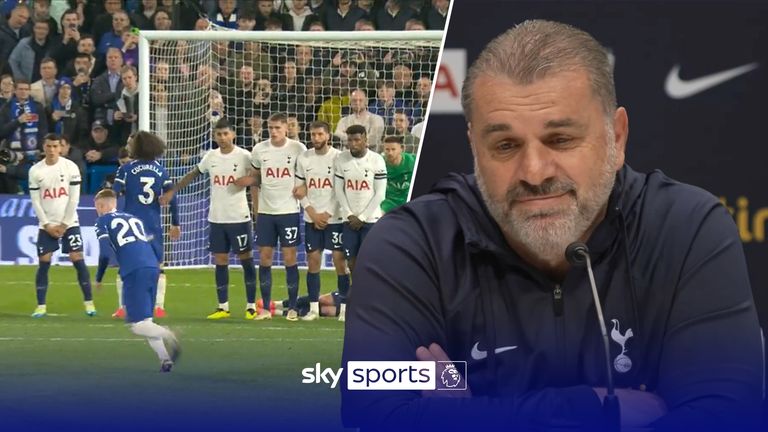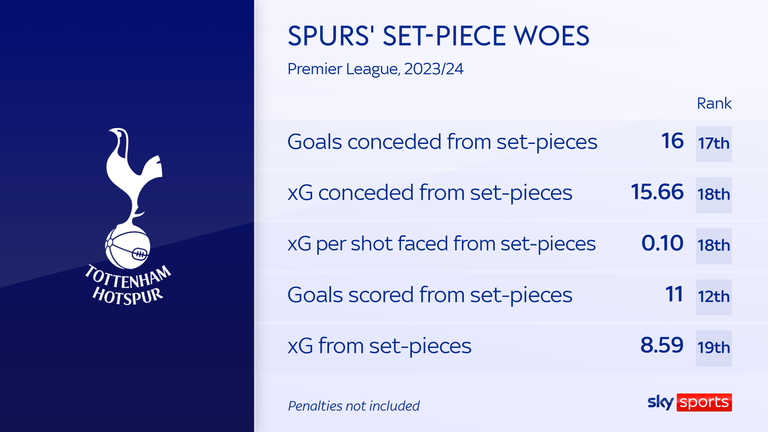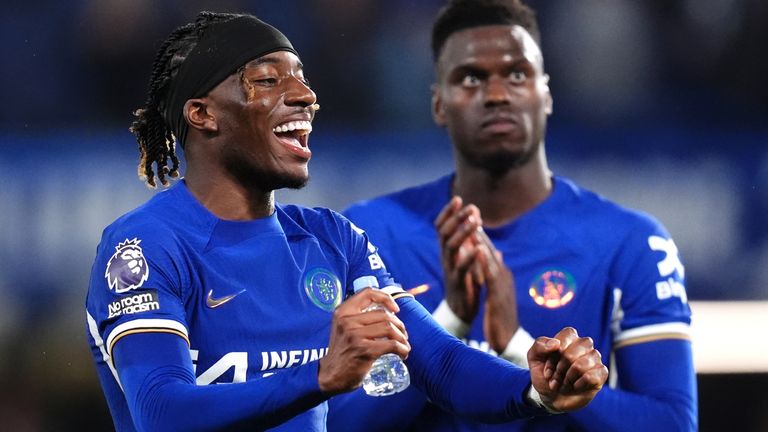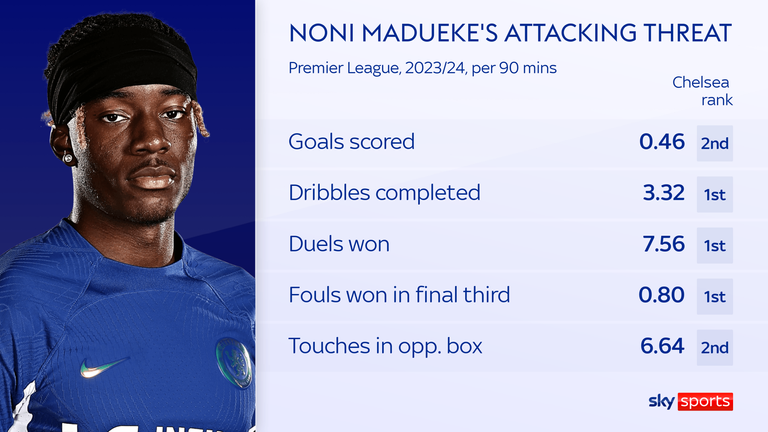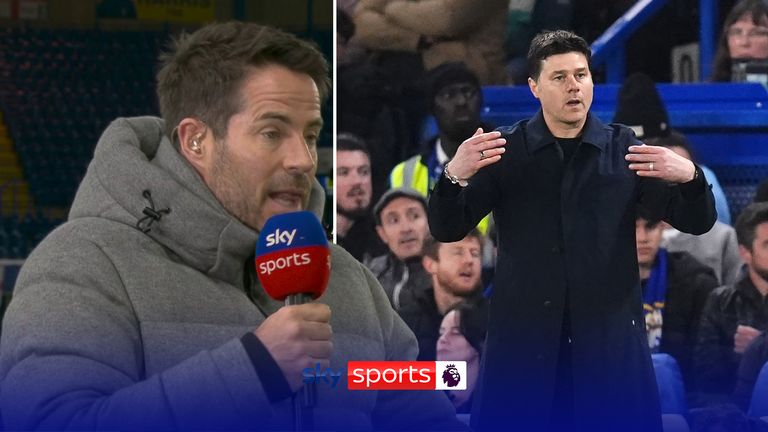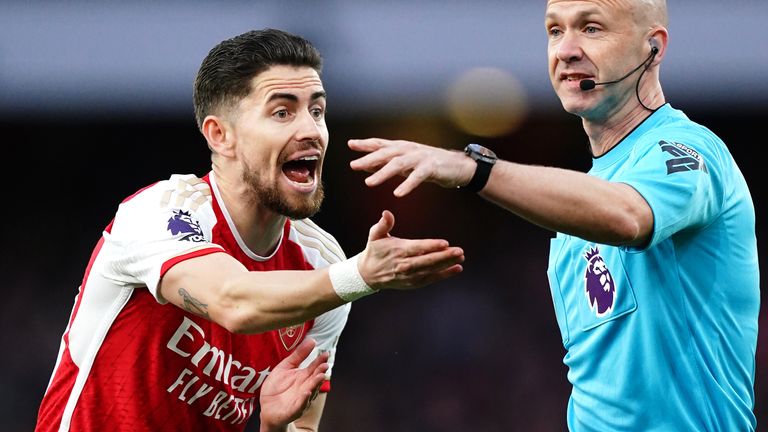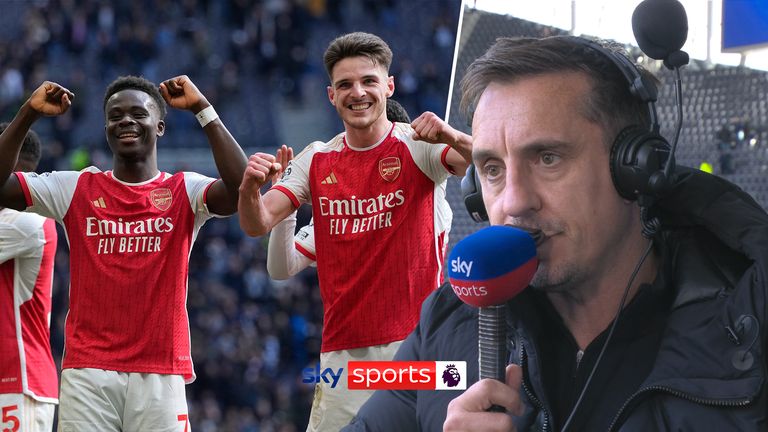Ange Postecoglou’s flawed thinking on set-pieces hurting Spurs, Noni Madueke shining for Chelsea – The Radar | Football News

Postecoglou wrong to dismiss set-pieces
Ange Postecoglou was bullish on the subject of defending set-pieces ahead of Tottenham’s meeting with Chelsea. “I don’t see it as an issue,” he said. But the two goals conceded from corners against Arsenal were followed by two from free-kicks at Stamford Bridge.
A problem he is unwilling to acknowledge is becoming impossible to ignore. Spurs have now conceded 16 goals from set-pieces in the Premier League this season, the fourth-highest total in the division and a figure that accounts for roughly 30 per cent of their total.
It was jarring, in that context, to hear him dismiss the importance of set-piece work so emphatically earlier this week. “I’m just not interested in it. I never have been,” he said.
Postecoglou feels he has more important things to worry about. But Tottenham’s continued struggles from dead-ball situations, at a time when their rivals are putting more time than ever into their preparation, show the folly of his attitude towards them.
It is, in part, a question of ideology. Postecoglou is a self-confessed purist whose commitment to his way of playing shone through in Tottenham’s last meeting with Chelsea too, when he persisted with a bewilderingly high line even after being reduced to nine men.
His expansive, attack-minded playing style was of course a major part of his appeal to Spurs, especially after the often-dour football overseen by his predecessors at the club.
But the competitiveness of the Premier League today is such that the rudimentary elements of the game require equal attention. The margins are simply too small for selective thinking.
Even Pep Guardiola, football’s great idealist, has acknowledged that, honing Manchester City’s effectiveness from set-pieces in recent years with the help of specialist coaches. Mikel Arteta has done the same, poaching one of those specialists, Nicolas Jover, for Arsenal.
It should be noted that hiring a set-piece coach is not a solution in itself. A specialist can only do so much if he does not have the buy-in of the players and the existing staff. And there seems little prospect of that at Spurs given the recent comments of their head coach.
That should worry supporters given they have struggled with set-pieces offensively as well as defensively this season. Their total of 11 set-piece goals is roughly average among Premier League sides. But the underlying data highlights a glaring lack of threat.
Indeed, their total of only 8.59 expected goals from attacking set-pieces this season puts them second-bottom in the Premier League, above only relegation battlers Burnley.
What is curious is that Postecoglou has himself acknowledged the importance of the details, bemoaning his side’s failure to manage them as well as Arsenal in the north London derby. Until he includes set pieces in that thinking, though, his side will remain hamstrung.
Madueke usurping Sterling at Chelsea
“I want to say, Noni Madueke today was, for me, unbelievable.”
Mauricio Pochettino was around a minute into an answer about building an identity at Chelsea in his press conference after their 2-0 win over Spurs at Stamford Bridge on Thursday night when, unprompted, he singled out their young winger for praise.
The Chelsea boss felt Madueke epitomised the difference between his side’s display on the night and so many others this season. “He did a fantastic job with the ball, but also without the ball, helping Alfie [Gilchrist] to defend [Heung-Min] Son. That is what we need.”
Madueke’s defensive diligence was particularly valuable in the second half at Stamford Bridge, when Spurs had Chelsea pinned back and Son was seeing more of the ball. The 22-year-old’s improvement in that regard is a welcome development given how much he already offers going forward.
Emerson Royal, beaten by him repeatedly at left-back for Spurs, certainly saw the extent of his attacking threat. Madueke’s display called to mind the words of Saul Isaksson-Hurst, an individual and technical coach who has worked with him for several years.
“One of his ‘super skills’ is cutting in on his left side, like Arjen Robben, and shooting,” he told Sky Sports after Madueke’s arrival at Chelsea last year. “We worked a lot on trying to develop that, but I also talked to him about the space it opens up on the right side. We worked a lot on that, going onto his weaker foot.”
Madueke’s capacity to beat his man on both sides was evident against Spurs. As well as firing narrowly wide having cut inside from the right midway through the first half, he sped past Emerson on the outside on three separate occasions, a constant menace.
His playing opportunities were limited in the second half of last season and the first half of this one following his £29m arrival from PSV Eindhoven. A show of petulance over a late penalty in the recent 6-0 win over Everton did not do him any favours either.
But Madueke’s inclusion against Spurs made it six consecutive starts and his emergence as an important player, however belated, was never in doubt to those who know him best.
Isaksson-Hurst describes him as a “mentality monster”. The fact he enlisted the help of an individual coach in the first place, having boldly left boyhood club Spurs for Holland aged only 16, is another clue of his determination to improve and develop.
With Raheem Sterling seemingly one of the big names criticised by Pochettino on Thursday night now falling out of favour, Madueke has a chance to cement his place in Chelsea’s attack.
Jorginho’s hidden value to Arsenal
Jorginho has been a peripheral figure during the run of three Premier League wins which has reignited Arsenal’s season, his only appearance coming from the bench against Chelsea.
But it was no surprise to hear confirmation this week that the club have offered him a new contract. His importance to Mikel Arteta, off the pitch as much as on it, shone through in conversation with the Arsenal boss at their London Colney headquarters in March.
“He makes everybody better,” he told Sky Sports. “That is a huge quality of Jorgi; his character, his personality, how contagious he is with his energy around the place, how he still wants to compete and win in everything he does every day. We are delighted to have him.”
Jorginho offers plenty in a playing sense too, of course. At 32, he remains an outstanding passer capable of bringing control and security in the heart of midfield.
Couple those qualities with the character mentioned by Arteta and it is easy to understand the club’s determination to secure his future. Less obvious, though, is the role he assumes during games in which he does not even feature.
In those games, he effectively acts as an extension of Arteta’s coaching team, relaying tactical instructions to his team-mates as he warms up by the side of the pitch.
And unlike Arteta and his actual assistants, Jorginho is not restricted to the technical area, enabling him to get closer to the action and get his messages across more easily.
It is a dynamic that requires the trust of his manager. Those tactical instructions have to be on-message, after all.
But Jorginho, described by Arteta as one of the most intelligent players he has ever coached, and with aspirations to one day become a manager himself, certainly has that trust.
“That is within him,” Arteta added of Jorginho’s coaching acumen. “We are trying to promote that because it is a huge quality to have within the squad. When coaching is right, it is extremely powerful and he is very good at understanding what is happening.
“He really has a lot of interest in it and he can project that within the team; to the young players, the old players, but also the staff and the coaches. That is his attribute. If he can help anybody, he will do it, regardless of his role. It is a very rare thing to find.”
And it is why, even when he doesn’t play, as has been the case recently, Jorginho is well worth keeping around.






